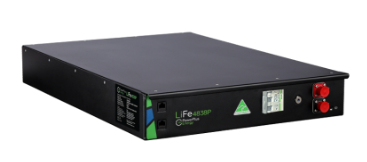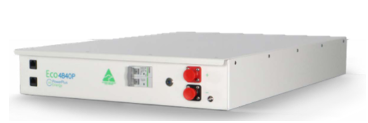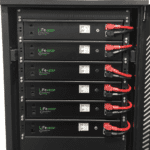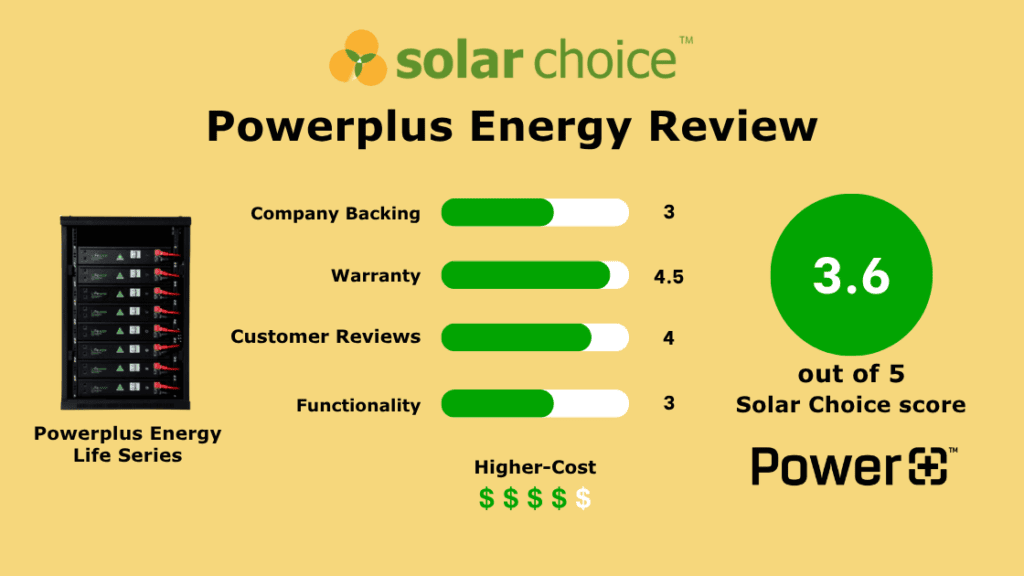Note: Solar Choice is not affiliated with Powerplus Energy batteries or any other battery manufacturer. Our reviews are independently written using technical documentation and industry analysis.
At a Glance: Powerplus Energy Batteries score 3.6 out of 5
Scoring is based on our solar battery scorecard, which is consistently applied to each brand and battery available on the Australian market. This scoring reflects Powerplus Energy’s Australian-made lithium battery systems for residential use.
$$$ Price: Based on data from Solar Choice’s network of solar installers, the average price for an installed Powerplus Energy battery is $1,150 per usable kWh, placing it in the higher-cost price range.
- Company Backing and Trustworthiness (3 out of 5): Powerplus Energy has operated in Australia since 2017, is locally based, and employs a local support team. While the brand is well regarded, it does not yet have the global scale of larger competitors, resulting in a mid-range trust score.
- Warranty Offer (4.5 out of 5): Powerplus Energy batteries include a throughput warranty of 3.56MWh per usable kWh, a 10-year product warranty, and guarantee 80% capacity after 10 years. These specifications offer robust coverage, especially for off-grid or heavy-use applications.
- Customer Reviews (4 out of 5): Powerplus Energy has received strong customer feedback, with a verified average rating of 4.33 from 3 reviews on Solar Choice’s independent platform. This earns a solid customer satisfaction score.
- Functionality (3 out of 5): Powerplus Energy batteries are modular, support independent module balancing via built-in BMS, and are IP66 rated when installed with an additional enclosure. However, they lack AC coupling and fire suppression, which reduces their flexibility and safety score slightly.
Background on PowerPlus Energy – Company History
PowerPlus Energy Battery Options and Models
LiFE Premium Series:
The Life Premium Series of batteries is their flagship range of lithium iron (LiFEPO4) battery products. It consists of the following models:

- LiFe2433P – 3.3kWh nominal capacity (24V)
- LiFe4833P – 3.3kWh nominal capacity (48V)
- LiFe4822P – 2.2kWh nominal capacity (48V)
- LiFe4838P – 3.8kWh nominal capacity (48V) – NEW
The LiFE Premium series of batteries are rated IP40 which means that they’re only designed to be installed indoors.
These batteries are designed to be “racked and stacked” in temperature controlled cabinets which PowerPlus Energy sell separately. They do have an outdoor rated cabinet called the slimline series.
It states in their documentation that the LiFE Premium series is compatible with most inverter brands. However, there aren’t any specific brands mentioned.
The LiFe4838P model in the Premium Series is the latest model which has 15% more capacity than their earlier models. It also has an improved BMS and LED lighting to indicate the battery status.
Eco Series

The Eco4840P model is designed for simplicity and can be AC or DC connected to your solar system. It can also be utilised off or on grid.
Eco Series (4840P) offers a 4.0kWh nominal capacity at 48V. The series also has the capability to be connected in parallel and mounted into standard 19 inch racks or cabinets.
LiFe Premium N70 Series

PowerPlus Energy’s off-grid LiFe Premium N70 Series offers 3 1.3kWh models LiFe1213N for 12V systems, LiFe2413N for 24V systems, and LiFe4813N for 48V systems.
These batteries are designed to suit a variety of off-grid scenarios such as motorhomes, boats and caravans.
The weight of LiFE Premium N70 series is light only 14kg making it light and portable. The batteries have a higher IP rating (IP52) than the other 2 series (IP40)
PowerPlus Energy Battery – Key Features
There are a number of features of the PowerPlus Energy battery worth mentioning:
Battery Management System
The in-built battery management system (BMS) will monitor the internal current, voltage, temperature and cell characteristics. This helps protect the battery by turning it off if it gets too hot, the current goes too high, or if the voltage fluctuates too much. Once the battery’s temperature, current or voltage normalises, then the BMS will turn it back on. The BMS also enables systems to be upgraded at any stage through the warranty period without the new batteries being impacted by the older more degraded batteries already in the system.
Infinitely Scalable
You can scale the nominal capacity of your battery system due to the modular design of the battery and the fact that it’s designed to be infinitely scalable. Therefore you have more flexibility with regards to your energy storage capacity for the future. This will be useful for those homeowners who later on find their night time use of appliances is put under pressure in the future.
Hot Swappable
A unique feature of the Powerplus Energy battery is that the individual battery modules can be removed and replaced from a system without needing to turn the power off. This is ideal for off-grid solutions where continuous power supply is critical.
How Much do PowerPlus Energy Batteries Cost?
We have received the below information from the manufacturer regarding the prices of their products.
| Description | Product Number | Recommended Retail Price |
| PowerPlus Energy LiFe Battery 3.3kWh 48V | LiFe2433P / LiFe4833P | $3,550 – $3,600 |
| PowerPlus Energy ECO 4.0kWh 48V | ECO4840P | $3,300 |
| Pre-wired Battery Cabinet (up to 8 batteries) | PIR8C | $2,695 |
| Pre-wired Battery Cabinet (up to 20 batteries) | PIR20C | $5,699 |
*Prices are for individual products only and excludes other required components and the labour cost to install
Compare quotes from up to 7 installers in your area now.
Australian Warranty Terms for PowerPlus Energy Batteries
The warranty terms differ among PowerPlus Energy’s battery series. Both the LiFe Premium Series and Eco Series modules come with a 10-year warranty from the original purchase date. While the LiFe Premium N70 series has a shorter warranty period of only 3 years.
There’s a few specifics with regards to this warranty worth mentioning:
- PowerPlus Energy will repair of replace the faulty battery at their discretion with new or refurbished parts
- The warranty doesn’t cover accidental damage, normal wear and tear or misuse
- The warranty doesn’t cover installation of battery, workmanship by others or suitability of the product for an application.
- PowerPlus Energy has the right to request photos of installation, history of maintenance schedule, battery charging settings and historic performance data that may be available.
To make a claim on your warranty, contact PowerPlus Energy directly on 03 8797 5557 or email info@powerplus-energy.com.au
Review PowerPlus Energy’s warranty documents below:
Premium Series Warranty
Eco Series Warranty
Life N70 Series Warranty
Pros and Cons of PowerPlus Energy Battery
Pros:
- Australian company and manufactured in Australia
- Batteries are modular and flexible to cater to a range of different system sizes
Cons:
- Less trading history and smaller company than some of the big battery manufacturers
- Batteries have comparatively low IP rating of 40
LiFe2433P, LiFe4833P & LiFe12033P Specifications
| LiFe2433P | LiFe4833P | LiFe12033P | |
| Nominal Capacity | 3.3kWh / 128Ah | 3.3kWh / 64Ah | 3.3kWh / 25.6Ah |
| Nominal Voltage | 25.6V | 51.2V | 128V |
| Continuous Discharge Current | 63A | 25A | |
| Charge/Discharge Cycles (Approx.) | 2700@100% DoD / 5000@75% DoD / 10,000@50% DoD @25°C op. temp. | ||
| System Connection | Infinite modules in parallel | ||
| Battery Cell Connection | Lithium Iron Phosphate (LiFePO4) | ||
| Dimensions (W x H x D) | 434 x 88 x 635 | ||
| Weight | 41kg | ||
| Operating Temperature Range | -20 to 60 degrees Celsius | ||
| Outdoor/Indoor | Indoor only (IP40) | ||
| Warranty | 10 years | ||
Independent Battery Testing
ITP Renewables have established an independent battery testing centre at the Canberra Institute of Technology and perform accelerated life cycle testing on batteries in 3 year phases. The centre is supported by a $1.29m grant from the Australian Renewable Energy Agency (ARENA) under its Advancing Renewables Program, and testing is conducted scientifically without interference from any manufacturers. ITP is currently testing 15 residential scale batteries available on the Australian market, and has had a total of 26 batteries installed at the centre.
The PowerPlus Energy Energy 2RU19 LiFe4833P commenced testing in 2020 as part of phase 3 of the program and the results are publicly available on the battery testing centre’s website. The Powerplus battery was connected to a SMA Sunny Island inverter for the testing.
ITP found that Powerplus Energy’s battery management system is designed to communicate with the inverter, so the inverter is responsible for determining the state of charge of the battery. When cycling at C3 rates, the energy discharged during each cycle was not close to the maximum apparently available, due to the inverter state of charge limits being reached first. The battery is now cycling at closer to a C4 rate and the battery discharges more energy at this rate before reaching minimum state of charge.
Conclusion – Our Verdict on Powerplus Energy
Powerplus Energy offers a compelling solution for those seeking a locally made, modular, and reliable battery system. With strong warranty coverage, independent module management, and solid customer feedback, it’s particularly well suited to off-grid and high-cycle applications. However, the lack of built-in AC coupling and fire suppression, along with the need for an additional enclosure to meet outdoor IP ratings, may limit its appeal for more mainstream, plug-and-play installations. Overall, Powerplus Energy is a strong choice for technically capable users who prioritise Australian manufacturing and long-term system durability.
Read more product reviews from Solar Choice
Since 2008 our knowledge and sophisticated software has allowed over 300,000 Australian households and businesses to make a well-informed choice on their solar & battery installer.
- The Top 5 Problems With Cheap Air Conditioning Quotes - 12 January, 2026
- Running Cost of Air Conditioners – Explained - 7 October, 2025
- Air Conditioner Rebate South Australia: What You Need to Know - 19 September, 2025
Reviews from Australians who have installed Powerplus Energy Batteries
Review left 2 years after system installed
Powerplus installed after LG recalled their battery. Working well.
batteries seem to perform well at this stage.
Review left 3 years after system installed
It works. No problem so far
